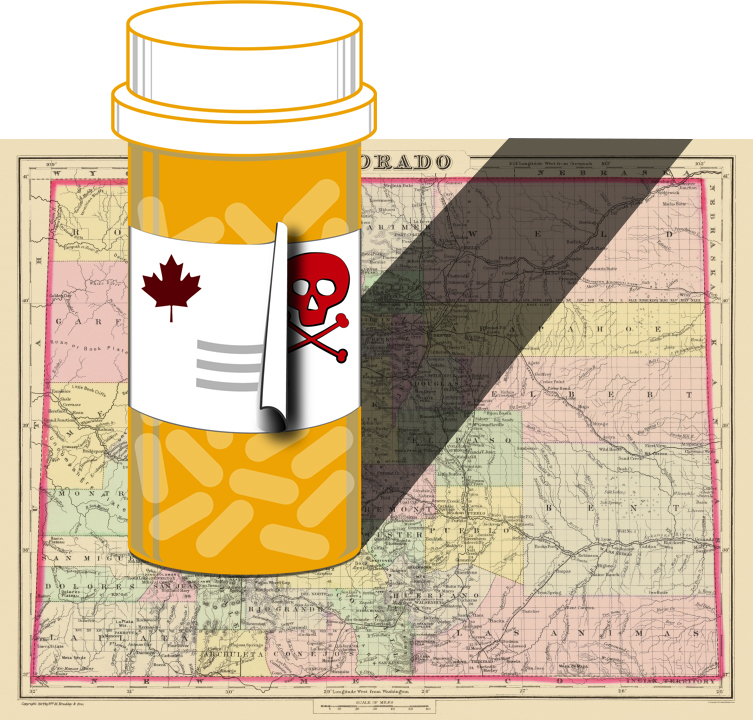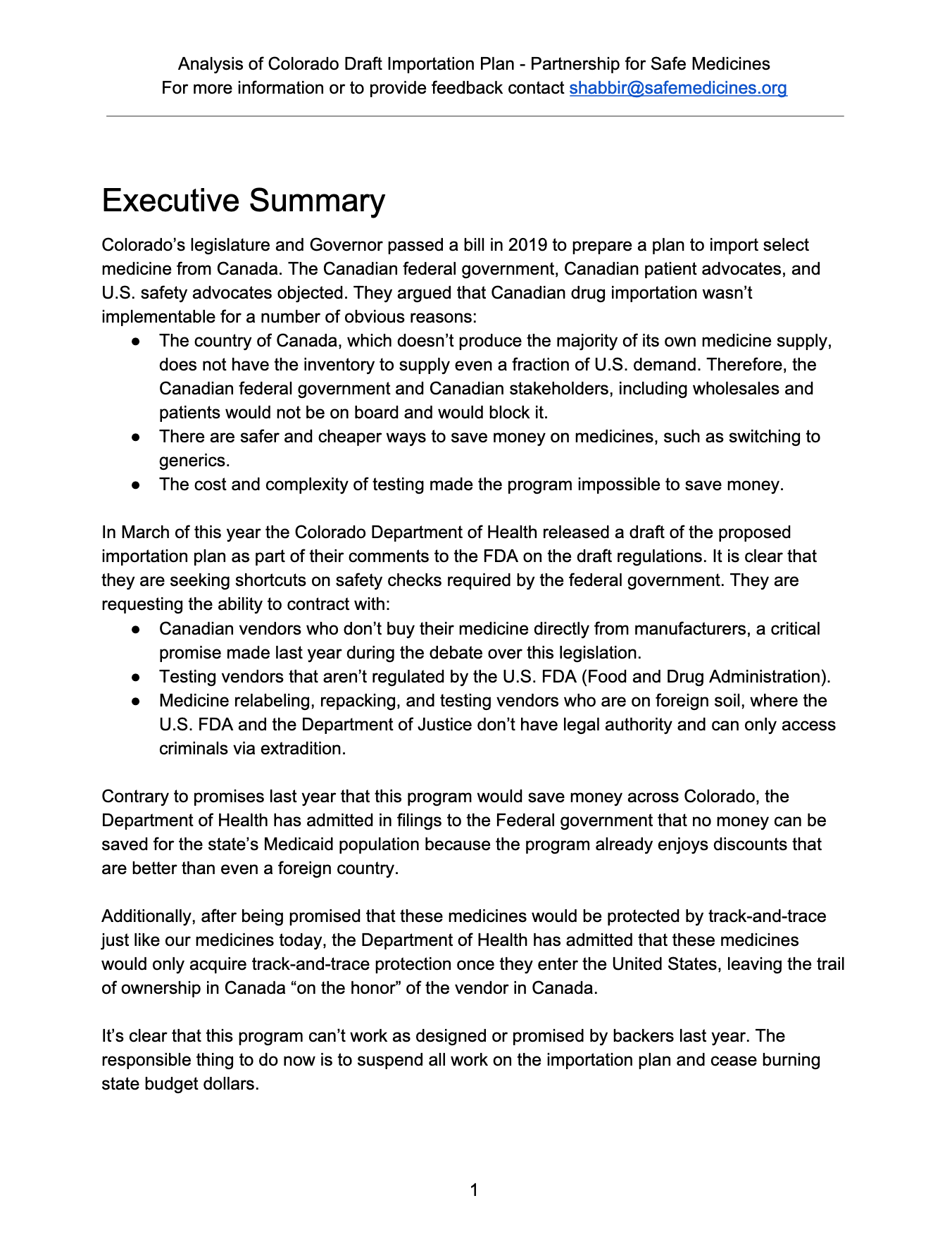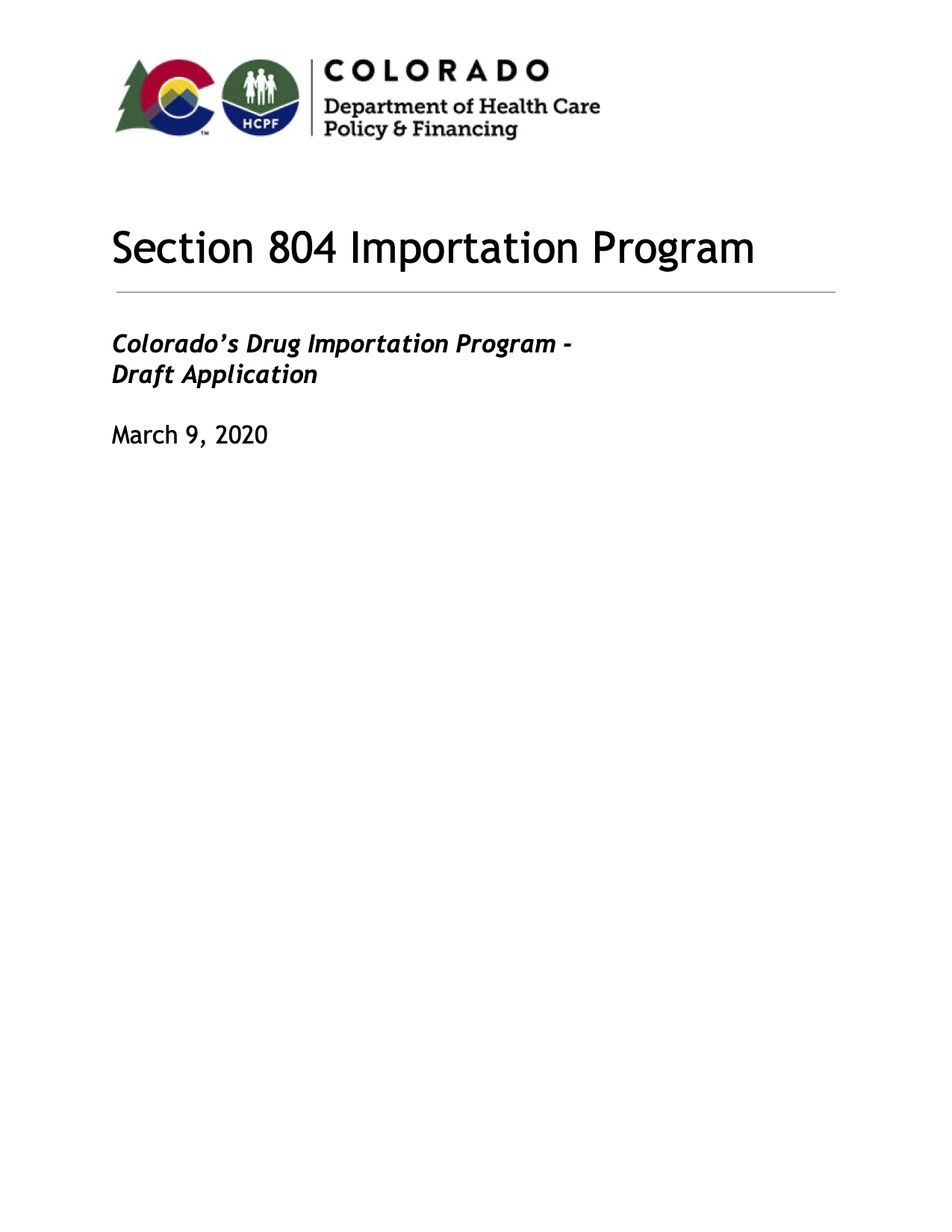Colorado’s Dilemma: Should We Save Our Citizens $141 Million Dollars This Year?
Or Just Burn Millions To Make A Political Point?
When Colorado published its list of prospective drugs to import in 2020, the states own numbers showed they could have saved more than $43 million just by switching to the generic versions of FDA-approved drugs sold in the U.S. market. We were able to compute this savings because Colorado published both the price they were paying for medications and the quantity they were consuming.
Two years later, an explosion of new generics has extended that number to $141 million.* To take just a few examples,
- As of 2021, the FDA has approved several different generic versions of Truvada, an HIV treatment and prevention drug. They come with as much as a 98% price cut, and would save Colorado $30.8 million in a single year
- The FDA approved ten different generics of the multiple sclerosis drug Tecfidera in late 2020, that would save them another $20.5 million this year.
- Fingolimod, the generic of an immunosuppressant called Gilenya, could cut Colorado’s cost by $15 million this year.
Generics offer states massive savings on drug prices without introducing the extra costs or risks of importation. And what is the alternative? Look to Florida, which is about one step ahead of Colorado. They’ve burned $24 million so far setting up an importation program and continue to burn $1.2 million every month, running an empty warehouse waiting for Canadian medicines that will never come.
The choice for Coloradans seems pretty clear. Why can’t Governor Polis see it?
* Cost information based on data included in the appendices of Colorado’s State Importation Plan draft, and PSM research into generic pricing. See the data here.
Learn more about Colorado's importation efforts.
Read PSM's analysis of Colorado's March 2020 Draft Importation Plan
Colorado's draft importation proposal and appendices.



